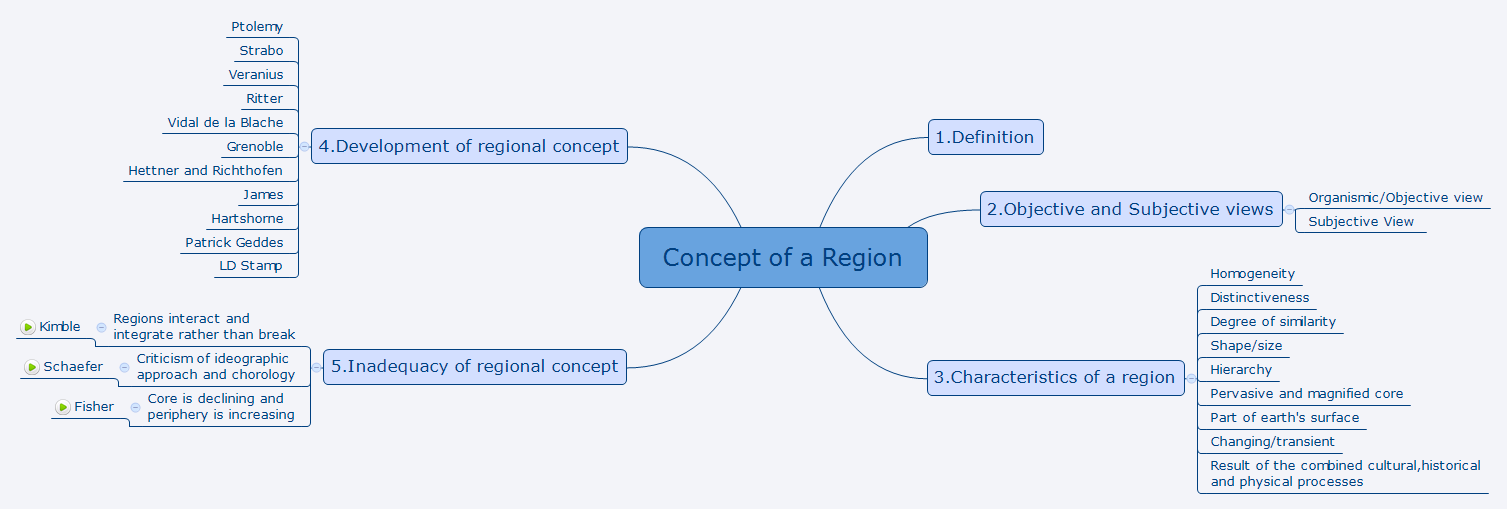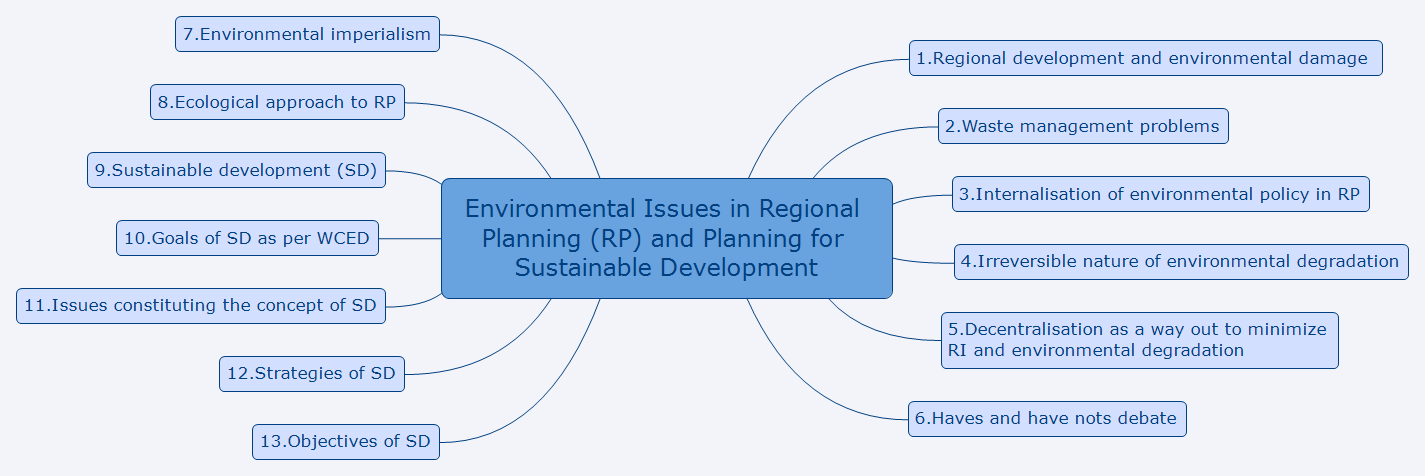Regional Planning
Paper I
- Concept of a region
- Types of regions and methods of regionalisation
- Growth centres and growth poles
- Regional imbalances
- Regional development strategies
- Environmental issues in regional planning
- Planning for sustainable development.
Paper II
- Experience of regional planning in India
- Five Year Plans
- Integrated rural development programmes
- Panchayati Raj and decentralized planning
- Command area development
- Watershed management
- Planning for backward area, desert, drought prone, hill, tribal area development
- Multi-level planning
- Regional planning and development of island territories
Contemporary Issues
- Regional disparities in economic development
- Concept of sustainable growth and development
- Linkage of rivers
Current Affairs
- Special Category States
- NITI Aayog
Regional Planning is one of the tricky portions of the UPSC syllabus. In fact, the wordings of the syllabus sound so generic that one doesn’t even feel the need of preparing some of its components. Take regional imbalance for example. It sounds so familiar and obvious (particularly in case of India) that one can almost instantly write a 1500 words essay on it. However, this perception based understanding becomes fatal at the end. Aspirants, having studied too much of general studies approach the questions of Geography also in the same generalist manner and that costs them valuable marks and often a seat in the merit list. Human Geography in general and Regional Planning in particular can easily play its tricks in the examination. One needs to be super conscious to avoid this trap. Just remember one thing- you can’t write what a non-Geography background candidate would in any case write. You might feel happy by filling pages of your answer booklet but that is going to make no difference.
IAS Baba shall make sure that you get a clear picture of such problems that are usually ignored by even the serious aspirants. We are here to equip you with many tools and strategies to minimize your mistakes.
Now proceeding further, we can’t over emphasize the fact that you need to have a grip on the vocabulary related to Regional Planning. You can anyway say that India is a country where there is widespread variations in terms of economic growth and development. However, anyone having reasonable degree of ease with relevant vocabulary would rather say that economic growth in India has witnessed great spatio-temporal disparities. You see how a simple sentence can be given the essence of Geography by using specialized words and phrases. You have to master these terms and use them again and again in your answers. If these terms are missing, your response to any question is just like an empty soulless container.
Imperatives of the subject:
Needless to say, compile a comprehensive list of related terms and terminologies and expand them in not more than 30 words. Revise them regularly and use them frequently in your answers.
Do some case studies of related topics. For example, in regional disparity, a case study of Kalahandi district or Vidarbha region might be useful in writing good answers. Similarly, in the strategies of regional development, many case studies can be found in Yojana magazine that talk about numerous such success stories. You need not read them all but at least one example each for water harvesting based development, SHG based mobilization, organic farming and other alternate forms of agriculture popularized in certain regions etc can be explored. Revise these cases regularly and must incorporate them in your answers.
You have to evince interest in the study of examples from all around the world. Regional disparities and imbalance occur at various levels. At the world level also you can see many examples of regional imbalance. Don’t ignore these examples. They are your sword and arrows for the battle of UPSC. Theoretical understanding if complemented with relevant examples can do wonders to your prospects in UPSC. For example, if you are able to explain even briefly the relation of the backwardness of the Sahel region of Africa and the phenomenon of desertification in this region, you can greatly enhance your score.
There are few blue blooded Geography topics in this part of the syllabus for example types of region, methods of regionalisation, growth centre and growth poles etc. It is better to prepare short notes for the same and revise them regularly. These questions can guarantee you easy marks if you have learnt them by heart. People often escape from these topics. It is upon you to make them your best friends rather than foes.
Sources and Resources
There are not too many sources for this part of the syllabus. However, we present an exhaustive list of various sources and resources beyond which you need not refer anything.
- SSS Series by K. Siddhartha
- Any good reference Geography dictionary
- Human Geography by Majid Hussain
- Rupa Series book on Human Geography
- Atlas
- Issue of Geography and You: January-February, 2014 and November-December, 2014
- Planning Commission documents for 12th FYP; only selective study
We shall keep you at your toes with our daily questions. These questions shall be of different types. Some will test your conceptual clarity while others will tease your brain to apply itself in a broader interdisciplinary manner. Yet others might be there to provide you with quick recall of concepts and issues.
Following mind maps would be useful in giving you the broad contours of the syllabus and also keep a tab on your progress
- Concept of a region

- Types of regions

- Methods of regionalisation

4. Regional imbalances

5. Environmental issues in regional planning and planning for sustainable development

All the Best
IASbaba







